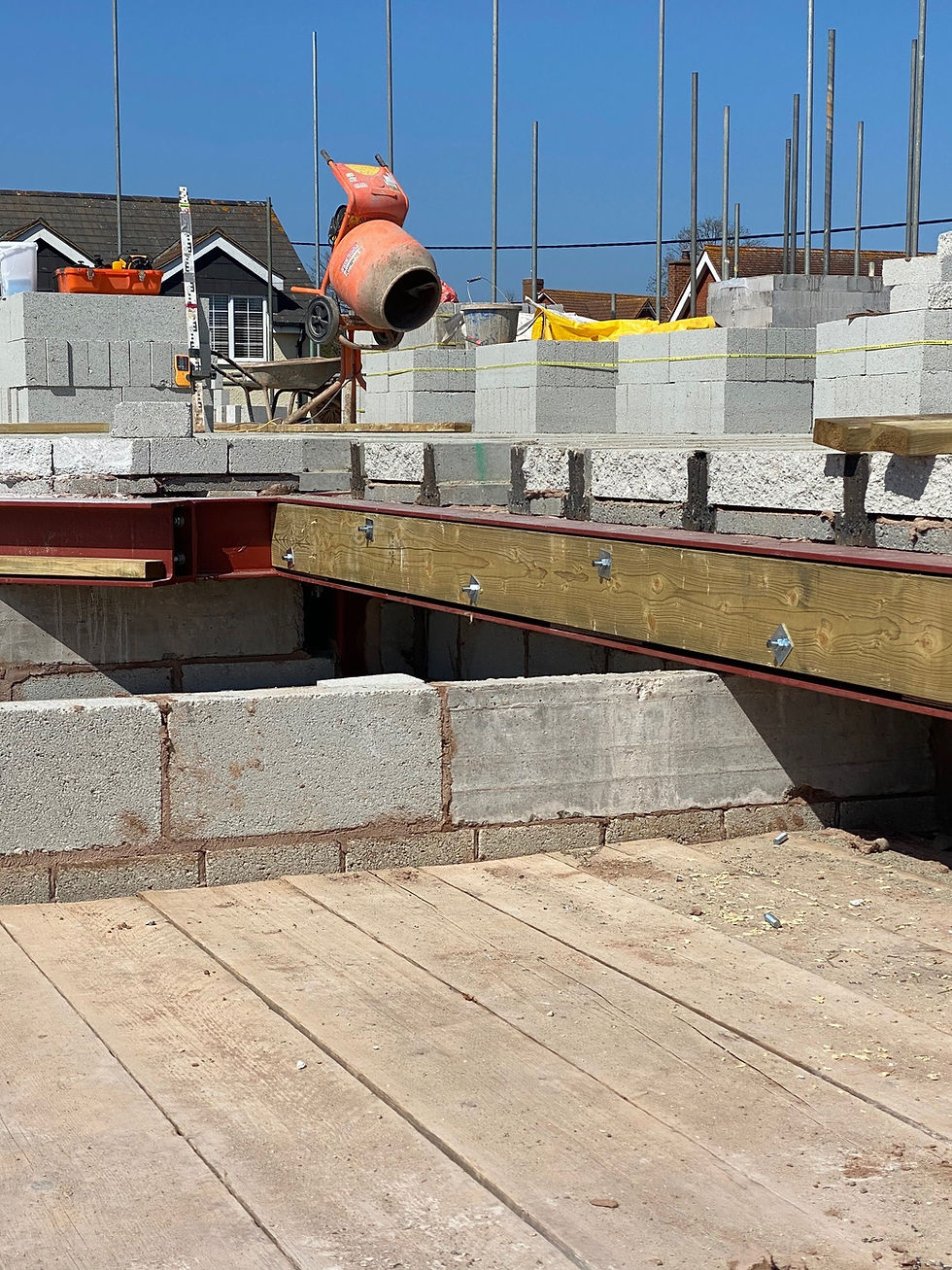Building your own home is a challenge, we aren't going to sugar coat it. It is often a complicated process filled with frustrating hurdles that require creative thinking and some excellent problem solving. But the effort is worth it, as you get something that is yours at the end of it, and fits you like a glove.
We have compiled our Top Five key considerations for self building, when it comes to construction.
1. Budget
Now, forgive us for stating the obvious, but money doesn't grow on trees and chances are your primary factor in consideration on your project is how much you want to spend and a few of the following items do stem directly from budget constraints, but we'll get to that later.
Every clients budget is different and it is important to consider this in the early stages of the design process. One person may have an unlimited budget and they will do anything to get exactly what they want, with only the best and finest materials on god's green earth.
Other clients may prioritise certain aspects of the build to spend more money in. For instance, a client may wish to open their kitchen up to the garden, this is their dream, so naturally they will want to spend a little bit more on a substantial set of folding or sliding doors. Whereas they may prefer to spend less money than another person may on their sanitaryware; taps, showers, basins etc.
This is a key part of the design process. A client deciding the elements of the project which are crucial to them, so the budget can be allocated accordingly.
It is very important to remember to plan for the unexpected in your budget. You never know what may be around the corner in your build. Expect the unexpected and ensure you are well advised from experienced professionals in your complete construction process.
2. The Site
The area you want to build your property are of vital importance and can have huge implications on what you're able to achieve and the construction methods needed. For example, some projects require extension foundations whereas others require less, what will need to be done is have consultation with an engineer. This is a vital step in your process and should not be pushed to the back burner. You need to fully understand the land you're building on so you are not in for any surprises into the build. Make sure to consider flood water levels too.
3. Construction Method

Different construction methods carry different benefits. For instance, timber framed buildings offer a speedy build and are more affordable, however a cavity brick build offers more acoustic and thermal properties, as well as increased longevity. There are numerous types of construction methods and you should discuss which method works for you, with your architect.
4. Design

This one is really stating the obvious, but a huge determiner of a project is the design itself, some designs carry more costs than others. For example- curves are expensive. If you have a love for curves and want curved walls, expect to pay top dollar for curved glazing.
Anything is achievable (within reason), but do expect to pay for it.
This is the same with your fittings, if you would rather high spec, solid metal ironmongery, this will add a fantastic quality feel to your home, but will ramp up those costs.
5. Time

This is number 5 on our list, but can be the most important factor for many clients. If you have a key date in mind, or a must-move date, you may want to take some key decisions to ensure you have the best chance of hitting this date.
Contract type can play a part in this, whether you are in a Traditional Contract with your Contractor or a Design and Build.
A traditional contract is where you appoint someone to design your home and upon receipt of planning permission, go out to tender, where contractors offer a price for the works. This can be a longer process, due to the detail required and the specification being solely dependant on you and your design team.
A design and build contract however does offer advantages in that it can be less expensive as it is less time consuming. If you are not particular about details and want to have decisions made quickly by on-site contractors as the build takes place then a traditional contract is for you. Design and Build projects work well for simple projects in which you are relatively assured there will not be any unexpected surprises which could spiral costs or result in the contractor reducing quality.
For great collaboration with alongside architects like us, a Traditional Contract is favourable, as it gives us as designers and you the client great input and control over the finished project, ensuring the little details are taken care of. However it is not perfect, it does result in a lot more decision making for the client, but this can be alleviated by appointing a Project Manager, which is a position the architect themselves can often undertake (we do it often...)
So there they are, Five key considerations for your Self-Build project. There are many obstacles to hurdle in the self build process and many key decisions to make. But with an expert alongside you, such as an experienced architect, you can rest assured they have hurdled these issues before and know how to make a project run smoothly.
If you'd like to speak to us about a project you are planning, please feel free to get in touch.


















Comentários